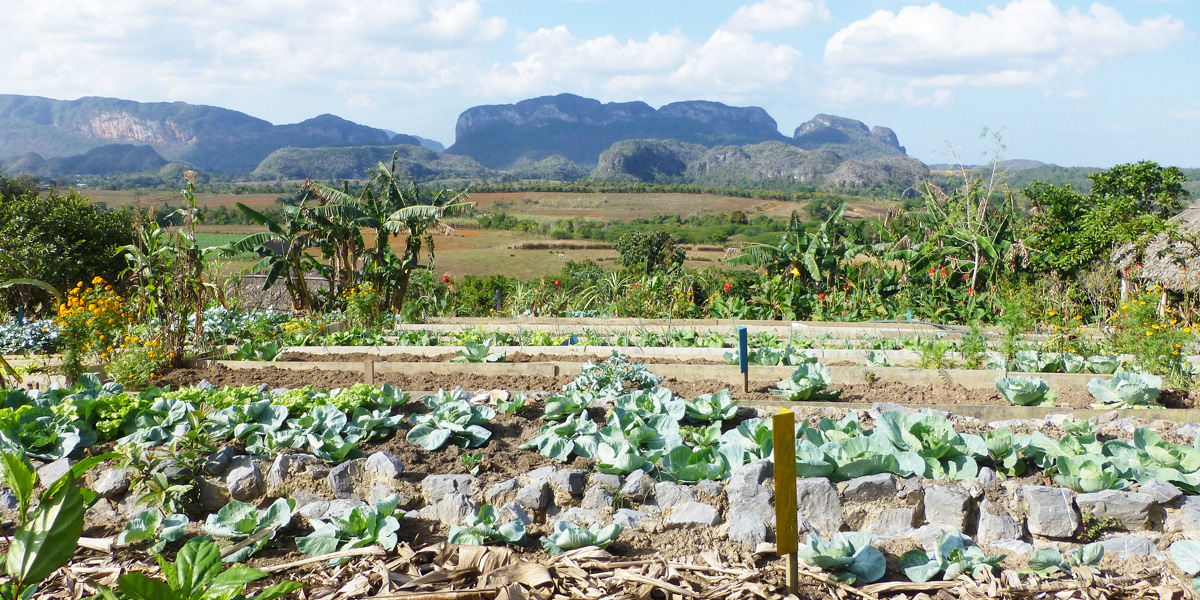
A new peer-reviewed article challenges the perennial myth that GMOs are needed to feed the world and says agroecology can do the job far better, but is starved of funds
There's a standard narrative that GMO proponents use to frame the global hunger problem and its solution. It goes like this. We currently have a global population of 7.5 billion, of which nearly a billion suffer from hunger. With a projected world population of around 10 billion by 2050, we have to produce more food to meet demand and feed the hungry. To achieve this, we must use all available technologies, including GMOs.
A new peer-reviewed article [1] challenges this claim. Authored by William G. Moseley, professor of geography at Macalester College, Minnesota, and published in Geographical Review, the new analysis found that while “GMO crops are just the latest in a long line of innovations that allow for more productive crops… this technology is sufficiently expensive that it is inaccessible to the poorest of the poor for whom food insecur[ity] is great issue”.
Prof Moseley gives a clear explanation of why GM crops are unlikely to make a significant contribution to solving the problem of hunger:
“[GMO] solutions are often aimed at maximizing production under ideal conditions, as opposed to minimizing risk in highly variable meteorological environments. Such variability is historically dominant in the semiarid tropics and now predicted more broadly under many climate-change scenarios. As such, investing in GMO-seed technology represents a significant financial risk for many small famers in variable rainfall environments, let alone the volatility of markets where farmers must sell all or part of their harvest if they are to cover their input costs.”
Prof Moseley points to the example of GM Bt cotton in India, where the 65% of farmers who rely on rain for irrigation found low returns from this GM crop, which is notorious for being water-thirsty. In Maharashtra state, farmers who took out loans to buy expensive GM seeds and the accompanying inputs fell into debt, with the result that “Following four consecutive years of low rainfall, this area emerged in 2015 as India's epicenter of farmer suicides.”
Incidentally, the statement in the article that GM allows for “more productive crops” is not supported by evidence, if we take “productive” to refer to yield. The report on GM crops published in 2016 by the US National Academies of Sciences concluded, “The nation-wide data on maize, cotton, or soybean in the United States do not show a significant signature of genetic-engineering technology on the rate of yield increase.”
Agroecology the solution
So what is the best way of helping poor farmers increase production and meet food needs? Prof Moseley agrees with the 400 international authors of the 2008 IAASTD report on the future of farming in his conclusion that “A more viable approach to helping the poorest of the poor increase production and meet food needs is informed by agroecology.”
The challenge for agroecological approaches is that while they provide innovative solutions that enable farmers to improve yields and manage pest problems, they are starved of resources. According to Prof Moseley: “Unfortunately, funding for work in this area has been woefully limited, probably because agroecological approaches are unlikely to generate the profits derived from the GMO nonsolution to global hunger.”
Synthetic biology for Africa?
While simple and affordable solutions to food insecurity stare us in the face, the British public science funding body, the BBSRC, is looking in the opposite direction. It has funded a workshop exploring the development of synthetic biology – known to critics as “extreme genetic engineering” – and gene editing in Africa in order to provide what it calls “sustainable and resource-efficient solutions to challenges of food production”. The BBSRC expresses the hope that these technologies will evade regulations for GMOs.
As the BBSRC’s report on the initiative makes clear, it’s all about setting up collaborative “partnerships” with various international biotech development bodies. These include “UK-based synthetic biology leaders and OpenPlant members such as the University of Cambridge, the Earlham Institute, the John Innes Institution, Imperial College London, the University of Edinburgh, and the Centre for Global Equality”.
In other words, while a billion people continue to go hungry, this initiative will construct a new gravy train for British research institutes that have recklessly devoted themselves to the GMO venture. To borrow the title of Prof Moseley’s article, it’s “a risky solution for the wrong problem”.
—
Notes
1. Moseley, William G. (2017). A risky solution for the wrong problem: Why GMOs won't feed the hungry of the world Geographical Review, 3 July. DOI: 10.1111/gere.12259
http://onlinelibrary.wiley.com/doi/10.1111/gere.12259/full










